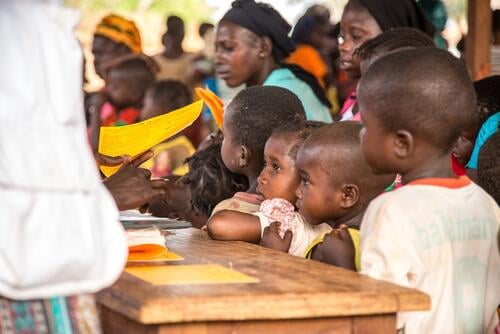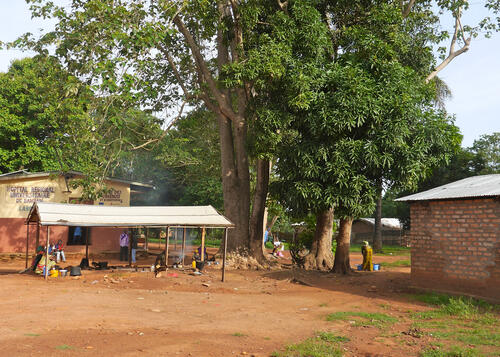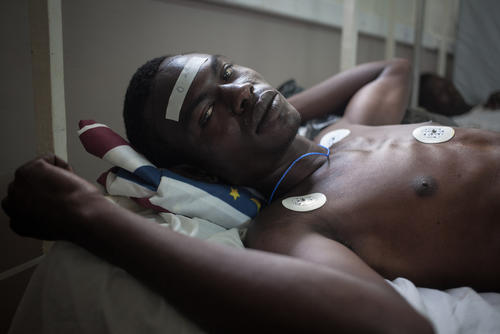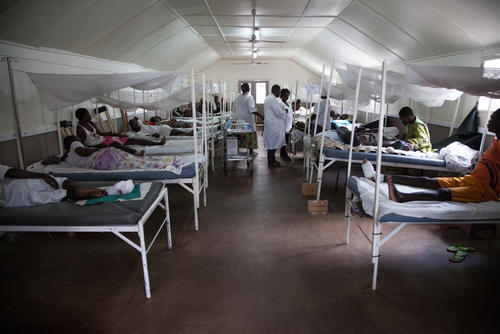In a context in which routine healthcare has broken down and many communities are left without even basic medical treatment, lots of children living in the Central African Republic (CAR) are missing out on routine vaccinations. In 2015, in partnership with the Ministry of Health, MSF launched an unprecedented campaign to vaccinate more than 213,000 children against nine common illnesses.
In 2011, while working across the country in CAR, MSF’s medical teams found that vaccination coverage for childhood illnesses was very low. This was contributing to alarmingly high levels of mortality – well above the emergency threshold – as easily-preventable illnesses such as polio and measles affected unvaccinated children.Central African Republic: A State of Silent Crisis, MSF report, November 2011 www.msf.org.uk/sites/uk/files/A_State_of_Silent_Crisis_EN_201112131500.pdf On top of the existing violence, displacement and health issues that spring directly from conflict, children were being left at risk of a lifetime without protection from deadly threats from the most common yet easily-preventable childhood illnesses.
The situation was compounded in the aftermath of the deadly civil war that took place in 2013-2014, when the percentage of immunised children collapsed. Official Ministry of Health figures showed that between 2012 and 2014 the number of Central African children vaccinated against measles fell from 64 per cent to 25 per cent, and those vaccinated against acute respiratory infections fell from 52 per cent to 20 per cent. By the end of 2013, only 13 per cent of one-year-olds had been fully immunised.
In mid-2015, MSF teams – in partnership with the Ministry of Health – sought to address this problem by rolling out a two-year-long mass vaccination campaign in six of the seven health districts across the country. MSF also committed to reinforcing vaccination activities in MSF-supported health facilities. In many areas, MSF’s teams were able to administer vaccines to the population only shortly before renewed violence broke out, rendering the community inaccessible.
This preventive vaccination campaign was the biggest ever undertaken by MSF in CAR and one of the first aimed at protecting under-five-year-olds against so many diseases.Dr Anne-Marie Pegg, MSF vaccination advisor
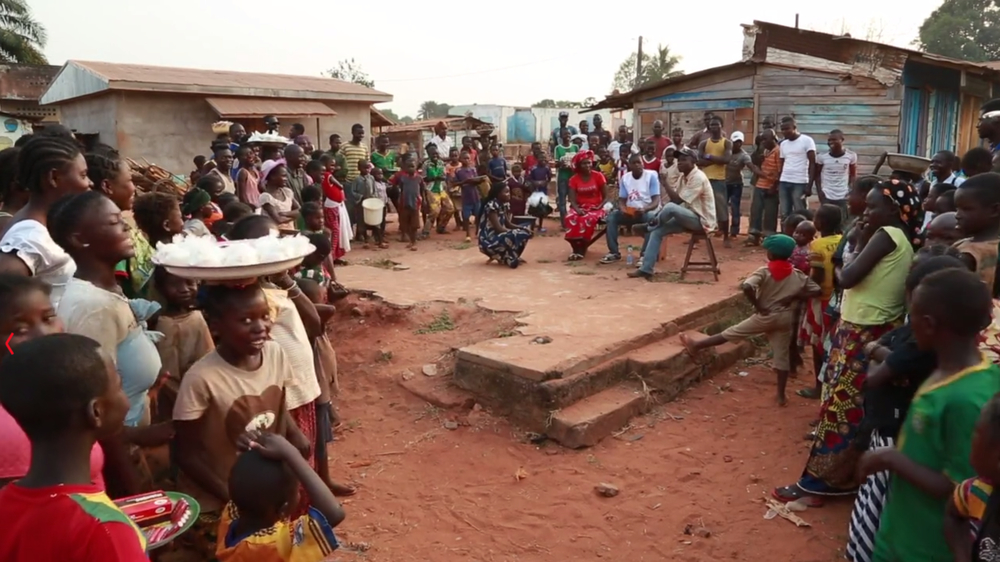
Vaccinating under-fives in the Central African Republic
“This preventive vaccination campaign was the biggest ever undertaken by MSF in CAR and one of the first aimed at protecting under-five-year-olds against so many diseases,” explains MSF vaccination advisor Dr Anne-Marie Pegg. “Given the situation in CAR right now, one of the main lessons learnt from the campaign is: ‘Do it while you can!’ This means taking advantage of every opportunity you have to reach children and protect them through vaccinations combined with other preventive measures.”
In total, more than one million vaccine doses were administered to children under five. As well as ensuring lifelong protection from illnesses such as diphtheria, tetanus, whooping cough, polio, influenza, hepatitis B, pneumococcus, yellow fever and measles, MSF conducted nutritional screening, provided medication for malaria treatment, vitamins and deworming treatments, and distributed soap and mosquito nets. The campaigns took place in 15 prefectures in which MSF had an existing presence: Berbérati, Sosso-Nakombo, Dédé-Makouba, Gamboula, Amada-Gaza, Bangassou, Bakouma, Ouham-Pendé, Carnot, Bria, Mbaiki, Moungoumba, Kabo, Batangafo and Ndélé.
According to follow-up studies conducted by MSF, immunisation coverage in the areas targeted by the campaigns has significantly improved, reaching over 80 per cent after the first round of vaccinations. Lessons learnt from the campaign continue to guide MSF’s response to emergencies in areas where immunisation coverage is still low and the population’s ability to access to medical staff, and vice versa, can quickly deteriorate. Efforts are now focused on continuing to aid routine immunisation programmes in MSF-supported health structures.



